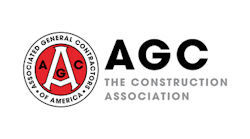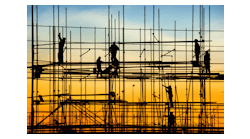My father immigrated to the United States in 1959. He was taking advantage of a residency program that was recruiting doctors from overseas and bringing them stateside to practice medicine, a way of beefing up the medical profession’s workforce. When he finished his residency, he worried for years about his immigration status and thus, his future.
President Joe Biden proposed the US Citizenship Act of 2021 during his first day in office. According to the White House Briefing Room, the legislation’s major priorities are to provide pathways to citizenship and strengthen labor protections, prioritize smart border controls, and address the root causes of migration. This week, it was formally introduced to Congress, marshaled by Representative Linda Sanchez (D-CA) and Senator Robert Menendez (D-NJ).
Reacting to the introduction, the Associated General Contractors of America’s chief executive officer, Stephen E. Sandherr, issued a statement saying, in part, “The proposed new immigration bill provides long-needed reforms to the nation’s flawed approach to immigration. By proposing to protect the legal status of so-called ‘Dreamers’ and immigrants participating in the Temporary Protected Status program, the measure will allow more than 100,000 people to continue working lawfully in the construction industry. In addition, the bill’s efforts to provide a path to legal status for undocumented immigrants will, if enacted, help eliminate the exploitation of undocumented workers by unscrupulous employers that puts our member firms at an unfair competitive disadvantage.”
But Sandherr also asserts his opinion the legislation is far from perfect. He points out, “The bill’s lack of a year-round, work visa program for construction workers makes it likely that many more will seek to enter the country unlawfully, especially in times of strong economic growth. The measure’s whistleblower provisions create perverse incentives for undocumented workers to make unsubstantiated workplace allegations simply to secure protected status within the domestic workforce.
“Moving forward, we will work with Congress to address the bill’s significant flaws as we work to protect or provide legal status for many who currently work in the construction community so they can continue to support economic growth and development.”
My father officially became a US citizen on July 4, 1976—the day the nation celebrated its bicentennial. He practiced medicine for more than four decades, most of it as an emergency room physician. He saved countless lives, served his community, and raised children who would be productive, contributing members of their own communities. I have always said with pride, “I am the son of an immigrant.”









